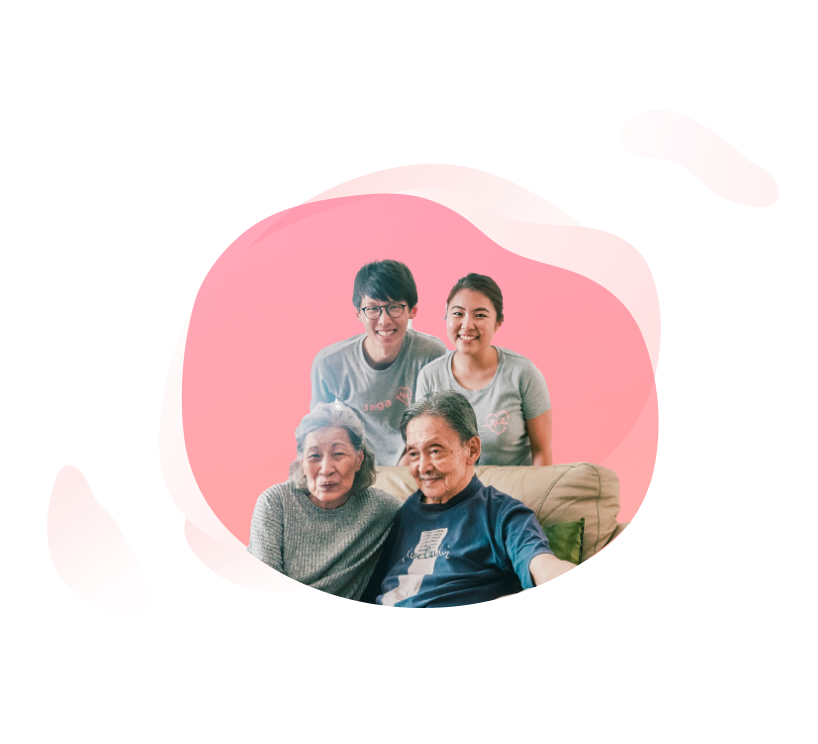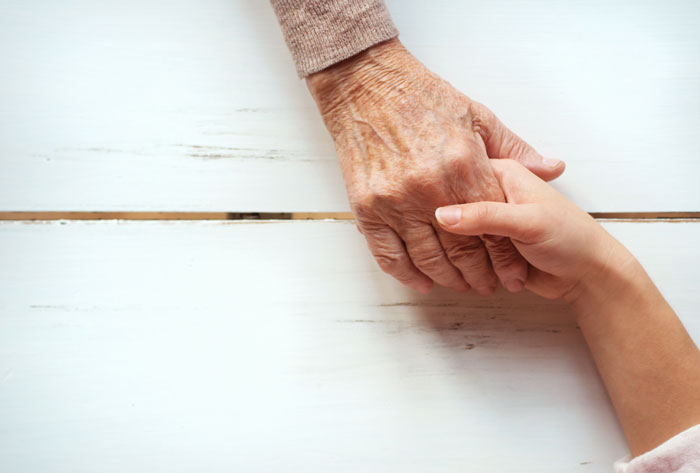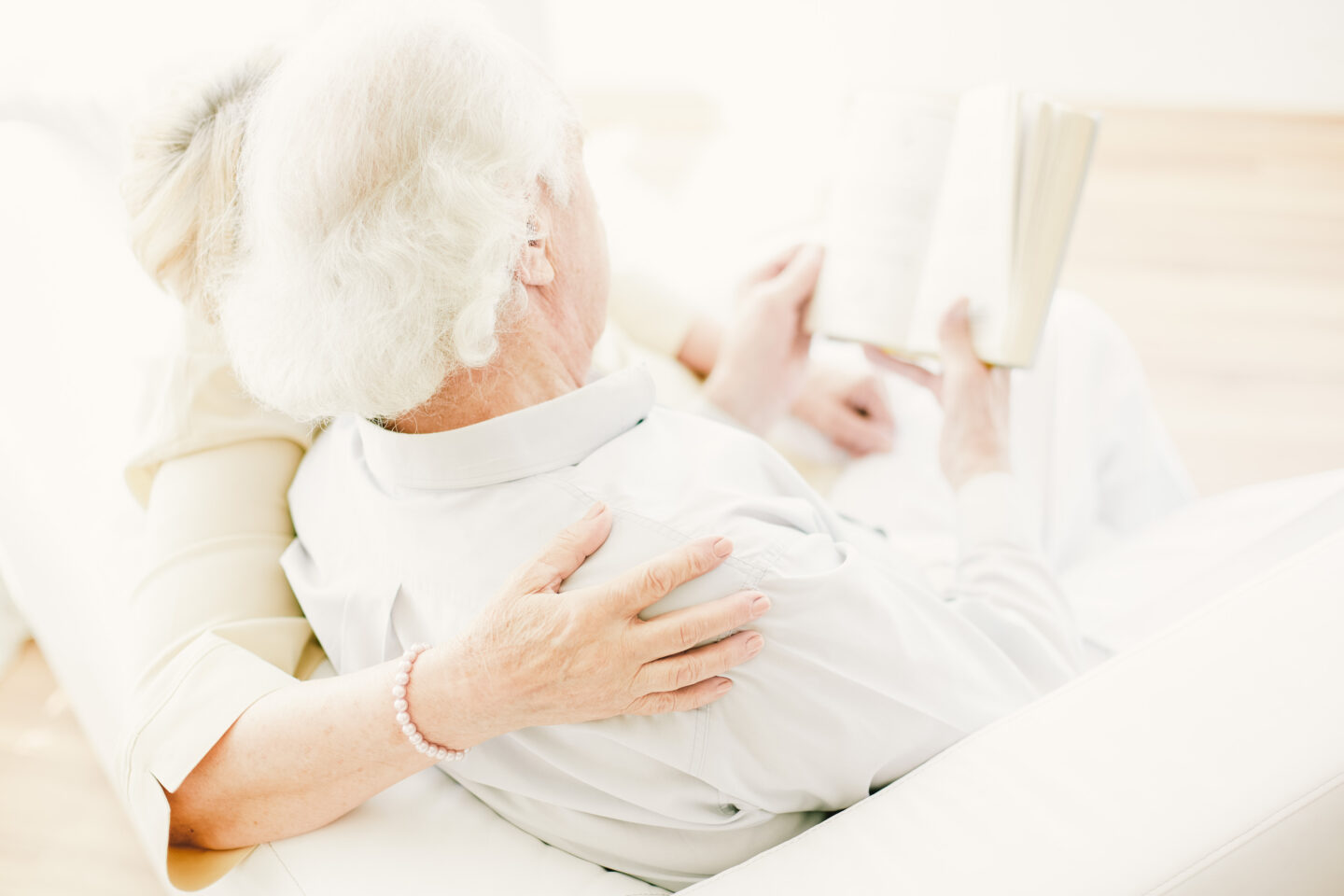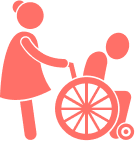Stroke Care Guide for Stroke Caregivers in Singapore


A Stroke Caregiver’s Guide for All Home Caregivers in Singapore
A stroke can happen suddenly and without warning. Adjusting one’s lifestyle to take care of a family member who has recently suffered a stroke can be a frustrating process especially if you are the sole stroke caregiver, and you may be at a loss as to how to deal with the situation. How do you take care of the stroke patient and also look after your own daily routine all at the same time? What if you do something wrong? How do you deal with unexpected situations? We have put together a comprehensive stroke caregiver’s guide for Singaporeans to help you cope with this major life change.
This guide will cover practical suggestions on how you can take care of a loved one who has survived a stroke.
Feeding and Nutrition
Stroke survivors often suffer from dysphagia due to weakened muscles or paralysis. If dysphagia is not properly managed, aspiration (inhaling food or drink into airways or lungs) may occur and lead to other complications such as pneumonia.
Our Jaga-Me Nurses and Stroke Caregivers (JagaPros) in Singapore will ensure that preventive measures are taken to prevent dysphagia:
- Assess swallowing ability – Our JagaPros are trained to assess the swallowing ability of your patient. Alternatively, you can engage with a speech therapist to assess your loved one’s swallowing ability. After the assessment, they will be able to advise you on the appropriate food texture and consistency to prepare for your loved one.
- Turn their head to one side when swallowing – This reduces the risk of aspiration so food does not enter the wrong way.
- Give them small bites and have them chew slowly – Chewing and swallowing carefully helps to prevent any choking or aspiration.
- Add supplements to their diet – Stroke survivors may not be having the right amount of nutrition if he/she is on a soft diet. Do check with your doctor or dietician for specific advice and whether the supplements are suitable for your stroke patient, as some supplements may increase the risk of a subsequent stroke.
- Consult a professional – Speech therapists can engage your loved one in swallowing therapy, and dieticians can advise you on food changes to maintain a healthy diet.
Handling Nasogastric Tube (NGT) Feeding
Some patients require tube feeding to acquire the necessary nutrients as they have severe difficulties swallowing. Check out our article on handling NGT feeding here to find out more.
Here are some tips from our JagaPros who have cared for stroke patients as professional caregivers in Singapore:
- Wash hands first – It is vital to ensure our hands are clean before handling the NGT.
- Make sure patient sits upright – Our Jagapros will ensure that the patient is sitting upright when using the NGT. This is to prevent aspiration or choking.
- Maintain good oral hygiene – Our JagaPros will check to ensure patient maintains good oral hygiene. Even with a NGT in place, stroke patient should still brush his or her teeth and gums daily.
- Secure the nasal tape – Nasal tape has to be changed every other day or if it becomes loose.
- Flush with warm tap water – It is important to flush the NGT with warm tap water before and after each feeding to prevent clogs, or if the tube is already clogged.
- Get our JagaPros to assist you – It is important to hire a professional nurse to change or unclog the NGT. NGTs need to be changed approximately every 4 weeks. If you are unsure or not confident in changing the NGT, you can call on Jaga-Me’s professionals to assist you, instead of queueing for long hours at the A&E. Jaga-Me has certified nurses who can help you with medical procedures in the comfort of your own home.
Bathing and Toileting
Using the washroom and bathing can be a real struggle for stroke survivors in Singapore , but can be made easier with the following tips. As their stroke caregiver, you can help them through these steps to maintain their daily hygiene.
- Shower instead of bathe – Your loved one is less likely to slip and fall when using a shower as compared to using a bathtub.
- Sit while showering – When showering, sit instead of stand. Purchasing a bath chair is useful in preventing bathroom falls.
- Modify the bathroom – Install grab bars, purchase non-slip flooring/bath mats and use bathing aids to reduce fall risk.
- Keep bathroom items in reach – This reduces fall risk as your loved one does not need to get up during the shower to obtain these items.
- Purchase liquid soap– It is easier to dispense (e.g. on a sponge or washcloth), compared to using a bar soap which is easy to drop.
- Dry the floor, wear non-slip socks/shoes – Do this before your loved one walks out of the shower. Ensure that your loved one is walking on dry ground, to prevent slips and falls.
- Install alarms to call for emergency assistance – Install alarms, bells or ways to call for emergency assistance in case your loved one falls in the bathroom unsupervised.
Incontinence
Incontinence refers to the lack of voluntary control of one’s urination or defecation. As a stroke caregiver, handling your patient’s incontinence may be a daunting and somewhat unpleasant job. You can check out our article on nursing care plan for urinary incontinence. In the meantime, we have four quick tips for you:
- Keep track of their toileting habits – Do take note of their toileting habits. Note down the times they empty their bladder or bowels and actively remind them to use the toilet at these timings.
- Purchase incontinence products – Consider buying incontinence pads, commodes, etc. A commode can be placed near your loved one’s room if the toilet is not nearby. Incontinence products can be found in hospitals and some pharmacies. Do take a look at our products for handling incontinence and more on our specially-curated JagaStore.
- Use clothes that are easy to wash and remove – Use clothing that is easy to put on, remove and wash. Clothes with elastic bands and velcro are some good options for patients with stroke.
- Seek professional help – Jaga-Me offers high quality home nursing services in Singapore for stroke. Our nurses and healthcare assistants in Singapore undergo a comprehensive caregiver training program to help your loved one change his or her incontinence pad and train you to handle these issues.

Emotional Support
Life after a stroke can be a very isolating and troubling experience, and post-stroke depression is prevalent in many stroke survivors. Anxiety, fear and depression can be difficult to deal with, but with the right management and support by a competent stroke caregiver, stroke survivors are definitely capable of making a full emotional recovery.
- Encourage them to join a stroke support group – Connecting with other stroke survivors, sharing experiences on coping with the condition and receiving social support are all crucial in improving one’s emotional state and reducing loneliness. Find out more about Singapore National Stroke Association’s Stroke Support Group here.
- Keep up engagement – Keep your loved one occupied and involved in activities. Setting goals and meeting targets help to improve one’s sense of self-worth and satisfaction.
- Consult a counsellor – If your loved one is suffering from depression, it would be good to see a counsellor or psychiatrist for treatment such as psychotherapy.
- Reply in a calm and composed manner – Do not criticise or argue with them when they lash out. Try to maintain a positive tone in your speech.
- Be there for them – Understand their needs, empathise with them and offer companionship. Respect and speak to them in a positive manner. Life after a stroke is tough, but you and your loved one are tougher.
- Engage with professional caregivers – Our JagaPros can share some of your responsibility in caregiving. Any uncertainties in how to care for your loved ones? Our JagaPros can help to guide you in various areas of handling a stroke patient’s ADL (activities of daily living) – e.g. toileting, showering, dressing and feeding. With professional help, you can focus on spending more quality time with your loved one or take a well-deserved break for yourself.
Preventing Another Stroke
From a study conducted by medical researchers in Singapore, approximately 18.4% of stroke patients were re-hospitalised in the 5 years following their first stroke. The risk of a stroke recurrence is ever-present and thus it is still important for a stroke caregiver to understand the symptoms of stroke even for a post-stroke patient.
Often, stroke symptoms are sudden and unexpected. However, you can prevent a stroke by understanding the tell-tale warning signs and symptoms typical of a stroke using the acronym FAST:
- Face – Is one side of the face drooping? Is there facial weakness?
- Arm – Can the person raise both arms? Is there arm weakness on one side? Are any of the arms drifting when held out?
- Speech – Is the speech slurred? Is there difficulty speaking?
- Time – Time to CALL 995 and seek medical attention IMMEDIATELY. A stroke is a medical emergency and can be fatal if medical attention is not sought as soon as possible.
If you or your loved one is experiencing one or more of these symptoms, immediately call 995 within 5 minutes. Note the time the symptoms started to occur and most importantly, remain calm while awaiting emergency medical attention.
To reduce such recurrences, it is also advisable to make certain lifestyle changes, such as:
- Quit smoking
- Abstain from alcohol
- Maintain a healthy diet
Your loved one may resist such drastic changes, but it is crucial to communicate to them the importance of these lifestyle adjustments in maintaining a healthier lifestyle in the long run, and reducing the risk of stroke recurrence and further complications related to stroke. Start with small steps, for example, gradually reducing consumption of deep fried food from 4 times a week to 2 times a week, then subsequently further reducing the intake of high cholesterol foods.

Support for Stroke Caregivers in Singapore
Caring for a stroke survivor may be rather demanding, especially if the patient suffers severe post-stroke complications, which may require constant attention from the caregiver. As a caregiver, you may feel fatigued and even depressed from the stress of juggling work and caring for your loved one.
- Support Groups
Connecting with other caregivers facing similar struggles as you and sharing experiences can be a good source of emotional support. Find out more about Singapore National Stroke Association’s caregiver support group here.
- Home Respite Care
Taking care of your loved one at home in a familiar environment rather than leaving them in a nursing home helps them age in place and lead more comfortable and happy lives.
At Jaga-Me, we understand your struggles. That’s why we offer professional home respite care service tailored just for you. Learn more about our home care services here so you can enjoy a well-deserved break while you leave your loved one in our safe hands.
- Financial Assistance
Need some financial aid in taking care of your stroke patient? Jaga-Me has compiled a comprehensive list of financial assistance schemes for care recipients and caregivers in Singapore for your reference.
Jaga-Me Can Help
As a stroke caregiver in Singapore , it is not easy to deal with the post stroke care and rehabilitation of survivors. It requires specialist knowledge and training to gradually help a stroke patient to recover from the traumatic experience. At Jaga-Me, we fully understand your concerns and difficulties. To ease your burden, we provide high quality home care for your loved one so you can relax and take a breather. Let our highly trained nurses help you and your stroke survivor patient go through this difficult journey. Get in touch with us to learn more about how we can help you.









